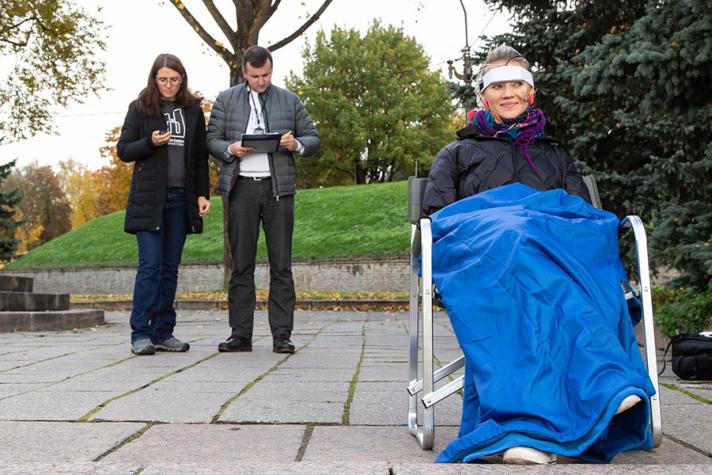Smart City researcher and expert in Digital Governance for more than ten years, Ralf-Martin Soe is also the founder of the Finest Centre for Smart Cities, based in Tallinn. He is a former Assistant Professor at the University of Technology in Tallinn and he is currently a Global Digital Governance fellow at Stanford University.
Ralf-Martin started his career with a master’s and PhD’s degree in Digital Governance in cities while studying in Maastricht before moving to Tallinn at the Institute of Technology. As he mentioned to us, Digital Governance is a renowned topic in Estonia and the country itself can be considered as exemplary in this field.
Ralf-Martin did not only research the topic, but also decided to work in the field, to understand more about the various challenges and to have a concrete idea of how things work. He got enrolled in an NGO focusing on Digital Society and Governance, which led him even further in the research on smart cities. He sees a strong potential in this topic.
What is the FinEst Centre for Smart Cities?
The FinEst Centre for Smart Cities is an international and interdisciplinary research and development centre, result of a joint initiative between Estonia (Tallinn University of Technology) and Finland (Aalto University). Since 2020, the centre proposes initiatives at the international level and is working closely with the European Commission on various projects.
With more than 30 employees (among whom researchers, phD students, etc.) the centre is carrying projects all over the world, in a hybrid environment. Ralf-Martin told us that “very few people are based in Tallinn, most of our team comes from different places across the globe”. Its main activities are to create pilots to test solutions and initiatives at city level.
What are the main goals of the FinEst Centre for Smart Cities?
The core principles of the Centre are to improve the citizens’ quality of life in urban areas bringing strong and effective cooperation at various levels in the process. City leaders, researchers, scientists, citizens, business managers, and engineers are brought together to create the better version of smart cities.
With a special focus on smart cities, the Centre is truly special since it is essentially based on concrete solutions and its main focus is given to pilot tests. With the number of research and projects increasing, it is now composed of a network of more than 200 researchers from all over the world.
The projects carried out here are organised around 5 main topics: Energy, Mobility, Environment, Data and Governance. The focus is then given to:
- Basic Research: understanding better the various principles of smart cities.
- Investment: programming pilots (most of them launched in Estonia) to undertake concrete tests before investment.
Some of the pilots undertaken and which Ralf-Martin highlighted are the following:
- A project on multi-mobility focusing on better mobility in Tallinn for public transport.
- A project on energy consumption looking at how buildings can be efficiently renovated and better ventilated.
- A project on local production of electricity, to store and reuse it more efficiently, be more independent at the local level and make sure that not much transport is needed.
The centre does not contain a research lab but prefers to implement ideas directly in the cities, as a concrete initiative, shown through large scale pilot programmes currently being undertaken, for the most part in Estonia.
What does the European Green Capital title represent in all of this?
According to Ralf-Martin, Tallinn as European Green Capital 2023 is another occasion to pursue the research on smart cities and green initiatives, it also gives a greater reach to the various propositions.
Some of the initiatives currently taken through the title year of Tallinn as European Green Capital 2023 were already undertaken previously through research at the centre and Ralf-Martin was part of it.
“All our projects are somehow related to contributing to this sustainability goal regarding climate neutrality” notes Ralf-Martin and “our projects are, without a doubt, aligned with most European Commission sustainability goals”.
The centre through its research and pilots’ situations studies (small-scale tests of methods and processes that could be more largely used in the future) is providing tools and actual services for the cities themselves. Most of the application solutions will be first tested out in the city of Tallinn, with now five ambitious projects.
What could cities take into consideration to become more sustainable according to Ralf-Martin?
According to our smart city expert, cities should work more often in close collaboration with private companies and research centres, to put in place efficient pilot projects, replying to specific city challenges.
Like this, we can all try what works or not and we can find the best and most efficient solutions in urban areas and at the level of the city itself. Every pilot has its own concept and after its implementation, the concept can be brought to a wider and a global level.

